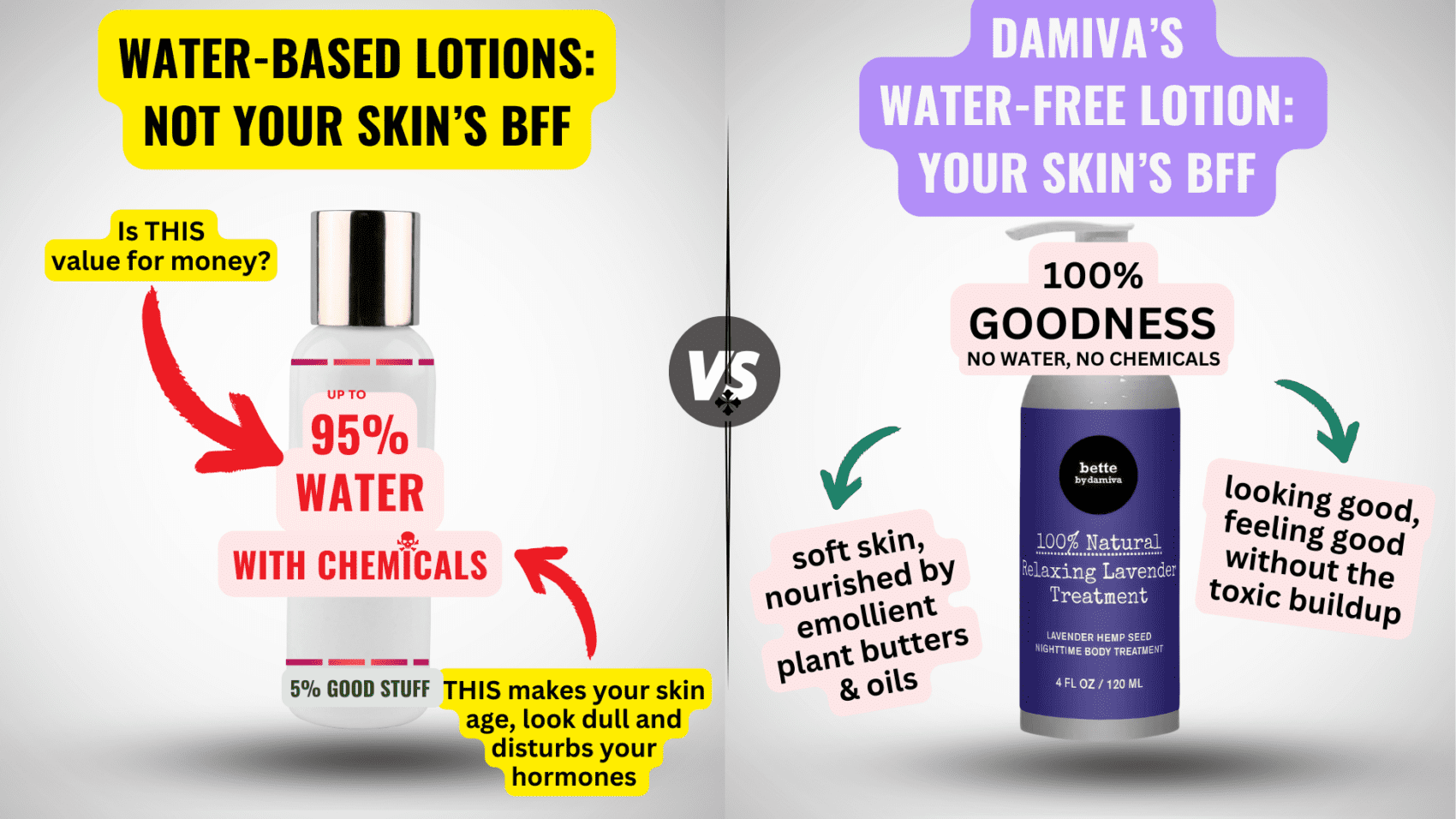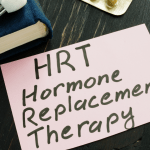Menopause is a natural biological process that marks the end of a woman’s reproductive years. It is not a single event but a transition that includes several stages: perimenopause, menopause, and postmenopause. Perimenopause is the time when the ovaries gradually begin to produce less estrogen and can start as early as the late 30s or early 40s. This phase is characterized by changes in menstrual patterns and can last several years. Menopause itself is diagnosed after a woman has gone 12 consecutive months without a menstrual period, typically occurring around the age of 51. Postmenopause follows menopause and continues for the rest of a woman’s life, during which some symptoms of menopause may persist or new health considerations may arise.
The Biological Process Behind Menopause
The biological underpinnings of menopause are rooted in the ovaries, which, over time, reduce the production of the hormones estrogen and progesterone. These hormonal changes trigger the cessation of ovulation and menstrual periods. The transition is gradual, and the fluctuating hormone levels can lead to a variety of symptoms that are often unpredictable in their onset and intensity. It’s important to understand that menopause is a normal part of aging and not a medical illness, though it can contribute to significant changes in a woman’s body and affect her health.
The Importance of Demystifying Menopause
Despite being a universal experience for women, menopause is shrouded in myths and misconceptions that can lead to unnecessary anxiety and fear. Demystifying menopause is crucial for empowering women with accurate information, enabling them to manage this phase of life proactively and with confidence. Understanding the facts helps in recognizing the diversity of experiences and challenges the stigma that can be associated with this natural transition. By promoting open discussions and education about menopause, women can be better prepared for the changes it brings and make informed decisions about their health and well-being.
Deconstructing Menopause Myths
Myth 1: Menopause Occurs Suddenly at 50
One of the most pervasive myths about menopause is that it strikes abruptly when a woman turns 50. However, menopause is not an overnight event but a gradual process. The transition, known as perimenopause, can begin in a woman’s 40s and last for several years, during which menstrual cycles may become irregular before ceasing entirely. The average age of menopause in the U.S. is 51, but it’s important to recognize the wide variation among individuals.
Myth 2: Menopause Directly Causes Symptoms
While it’s true that many women experience symptoms such as hot flashes, night sweats, and mood swings during menopause, it’s not accurate to say menopause directly causes these symptoms. Instead, they are typically the result of hormonal fluctuations that occur during the perimenopausal period. Not all women will experience these symptoms, and for those who do, the intensity and duration can vary greatly.
Myth 3: Symptoms Are the Sole Diagnostic Tool
Believing that symptoms alone can diagnose menopause is a misconception. Menopause is clinically defined as the absence of menstrual periods for 12 consecutive months. While symptoms can indicate the onset of perimenopause, they are not the sole diagnostic tool. Other factors, including medical history and, in some cases, hormone level tests, are also considered.
Myth 4: Early 40s Is Too Young for Menopause
Menopause before the age of 40, known as premature menopause, and between 40-45, known as early menopause, can occur and are more common than many realize. Factors such as genetics, medical treatments like chemotherapy, surgery, or autoimmune conditions can contribute to an earlier onset of menopause. It’s essential for women in their early 40s to be aware that menopause is a possibility and not to dismiss related symptoms.
Myth 5: Menopause Duration Is Uniform
Another myth is the belief that the duration of menopause is the same for every woman. In reality, the length and experience of menopause can vary widely. Some women may transition through perimenopause quickly, while others may have symptoms that last for a decade or more. Understanding this variability is crucial for setting realistic expectations and seeking personalized treatment options.
In conclusion, debunking these myths is vital for women to approach menopause with accurate information and to seek guidance that is tailored to their unique experience. By dispelling misconceptions, we empower women with knowledge, enabling them to make informed decisions about their health and well-being during this natural life stage.

Doubting chemicals in skincare and femcare? Well done! Choose chemical-free products whenever possible.
Understanding Menopause Symptoms
Common Symptoms and Their Causes
Menopause is often accompanied by a variety of symptoms that can affect a woman’s quality of life. These symptoms are primarily caused by the natural decline in reproductive hormones as a woman ages. Hot flashes are one of the most common symptoms, affecting up to 80% of menopausal women. Other prevalent symptoms include difficulty sleeping, mood changes, weight gain, and vaginal dryness. These changes can begin during perimenopause, the transitional period leading up to menopause, and may persist into postmenopause.
The Role of Hormonal Fluctuations
Hormonal fluctuations play a central role in menopause symptoms. As the ovaries reduce their production of estrogen and progesterone, the body responds to these changes in various ways. Estrogen is involved in many body systems, including the regulation of body temperature, which is why fluctuations can lead to hot flashes and night sweats. It also affects mood regulation, bone density, and the health of the vaginal and urinary tissues, explaining the wide range of symptoms that can occur during this time.
Differentiating Menopause from Other Conditions
While menopause is a natural biological process, it’s important to differentiate its symptoms from those of other medical conditions. For instance, thyroid disorders can mimic some menopausal symptoms, such as mood swings and weight changes. Similarly, sleep disturbances could be attributed to sleep apnea rather than menopause. It’s crucial for women to consult with healthcare providers to ensure that their symptoms are not due to other underlying health issues. A thorough evaluation, which may include blood tests and screenings, can help distinguish menopause from other conditions and guide appropriate treatment.
Understanding the symptoms of menopause and their causes allows women to seek effective management strategies. Whether through lifestyle adjustments, hormone therapy, or alternative treatments, women do not have to endure menopause symptoms without support. By recognizing the role of hormonal changes and differentiating menopause from other health issues, women can navigate this transition more comfortably and with greater knowledge.
Do you know the three main ways that your body gets in touch with harmful chemicals with everyday products? Knowledge is Power!
The Ultimate Detox Guide will tell you how to lower your exposure to harmful chemicals!

Fertility and Contraception During Menopause
Myth 6: Pregnancy Is Impossible During Menopause
One of the most pervasive myths about menopause is that once a woman enters this phase of her life, pregnancy becomes impossible. This is a misconception. While fertility does decline significantly during perimenopause—the transitional period leading up to menopause—ovulation can still occur sporadically. As long as ovulation and menstruation continue, even if irregularly, there is a potential for pregnancy.
It is recommended that women use contraception until they have not had a menstrual period for 12 months if over the age of 50, and for two years if the menopause occurs before the age of 50. This precaution helps to prevent any unexpected pregnancies during a time when many may assume they are no longer fertile.
Contraception Advice for Menopausal Women
Contraceptive advice for women going through menopause is crucial, as the risk of pregnancy still exists. Women should continue with their usual contraception routine until the aforementioned milestones are reached. However, the type of contraception may need to be reassessed as women approach menopause.
- Barrier methods, such as condoms, remain a reliable form of contraception and also provide protection against sexually transmitted infections (STIs).
- Oral contraceptives can be used during perimenopause but may need to be evaluated for suitability, especially if there are concerns about cardiovascular risks or if the woman smokes.
- Intrauterine devices (IUDs) can be an effective long-term option, with some types also providing the benefit of reducing heavy menstrual bleeding—a common perimenopausal symptom.
- Hormonal options, such as patches or vaginal rings, may also be considered, but it’s important to discuss potential risks and benefits with a healthcare provider.
It’s essential for menopausal women to consult with their healthcare provider to get personalized advice on contraception. Factors such as age, health history, and personal preferences will influence the most appropriate and effective contraceptive methods during this transitional period.
Ultimately, understanding the realities of fertility and contraception during menopause empowers women to make informed decisions about their reproductive health. By debunking myths and providing factual information, women can navigate this natural life stage with confidence and clarity.

THEN IT CONTAINS TOXIC CHEMICALS. WHY RISK IT GETTING SICK? GO CHEMICAL FREE.
Hormone Replacement Therapy (HRT): Risks and Benefits
Myth 7: HRT Is Predominantly Risky
One of the most pervasive myths about Hormone Replacement Therapy (HRT) is that it is predominantly risky, with fears of increased risks of heart disease, stroke, and cancer often cited. However, this myth stems from misinterpretations of past studies, such as the Women’s Health Initiative (WHI), which initially suggested increased risks for older women on a specific combination of HRT. Subsequent reevaluations have clarified that for women under 60 or within 10 years of menopause onset, HRT can actually reduce the risk of heart disease and does not carry the same risks for breast cancer as previously thought. It is essential to understand that HRT, particularly when started at the appropriate time and monitored correctly, can be a safe and effective treatment for menopausal symptoms.
Types of HRT and Their Uses
HRT comes in various forms, with more than 50 types available to cater to individual needs. These include both systemic treatments, such as pills and patches, and localized treatments, such as vaginal creams and rings, which are particularly useful for genital and urinary symptoms. The types of hormones used in HRT can be bioidentical, meaning they have the same molecular structure as the hormones naturally produced by the body, or synthetic. The choice of HRT type depends on a woman’s specific symptoms, health history, and personal preferences, with the goal of providing the most effective relief with the fewest side effects.
Evaluating the Risks of HRT
While HRT can offer significant benefits, it is not without risks. The potential risks of HRT can include blood clots, stroke, and certain types of cancer, although these risks vary depending on the type of HRT, the dosage, the duration of treatment, and individual health factors. It is crucial for women to discuss their personal and family medical history with their healthcare provider to carefully weigh the risks and benefits. For many women, the quality-of-life improvements offered by HRT outweigh the potential risks, especially when treatment is personalized and closely monitored.
Recent Changes in HRT Guidelines
In light of new research and a better understanding of HRT’s risks and benefits, medical guidelines have evolved. Current guidelines suggest that HRT can be an appropriate treatment for symptomatic menopausal women, particularly when initiated before the age of 60 or within 10 years of menopause. The guidelines also emphasize the importance of individualized treatment plans and the consideration of non-hormonal alternatives when appropriate. As research continues to advance, these guidelines are regularly updated to reflect the latest evidence, ensuring that women receive the most current and comprehensive care.
In conclusion, while HRT does carry some risks, these are often outweighed by the benefits for many women suffering from menopausal symptoms. With a variety of HRT types available and a personalized approach to treatment, women can find relief from menopausal symptoms and improve their quality of life. It is essential for women to have open and informed discussions with their healthcare providers to make the best choices for their individual health needs.

Menopause and Weight Management
Myth 8: Menopause Causes Excessive Weight Gain
One of the most pervasive myths surrounding menopause is the belief that it inevitably leads to excessive weight gain. While it’s true that many women experience changes in their body composition during this time, attributing all weight gain to menopause is misleading. The reality is more nuanced. Factors such as aging, lifestyle, and genetic predisposition play significant roles in weight changes. Menopause may contribute to shifts in fat distribution, leading to more abdominal fat, but it is not solely responsible for substantial weight gain. Understanding the interplay between menopause and weight is crucial in managing health during this phase of life.
Understanding Weight and Hormonal Changes
As women enter perimenopause and menopause, the body undergoes significant hormonal fluctuations. Estrogen levels decline, which can impact metabolism and the way the body stores fat. This hormonal change can lead to a decrease in lean muscle mass and a slower metabolism, making it easier to gain weight, particularly around the midsection. However, this does not mean that weight gain is inevitable or uncontrollable.
It’s important to note that lifestyle choices have a substantial impact on weight management during menopause. Regular physical activity and a balanced diet are key components in maintaining a healthy weight. Resistance training can help counteract the loss of muscle mass, and cardiovascular exercise can help prevent the accumulation of visceral fat, which is linked to increased health risks.
Additionally, nutritional adjustments may be necessary. As metabolism slows, caloric needs may decrease. Focusing on nutrient-dense foods, such as vegetables, fruits, lean proteins, and whole grains, can help manage weight and provide the necessary vitamins and minerals for overall health.
It’s also worth considering that sleep quality often declines during menopause, which can affect hunger hormones and lead to increased appetite and cravings. Ensuring adequate sleep and managing stress through relaxation techniques can help mitigate these effects.
In conclusion, while hormonal changes during menopause can influence weight and fat distribution, they do not doom women to excessive weight gain. With mindful attention to diet, exercise, and lifestyle, managing weight during menopause is entirely possible. It’s about creating a sustainable approach that accommodates the body’s changing needs.
Empowering women with accurate information and debunking myths like these allows for a proactive approach to menopause. By understanding the facts, women can take charge of their health and well-being during this significant life transition.
By the way, something for you, a little gift!!!
I am just in the middle of publishing my book. It’s about How women can balance their hormones. One part is about food and diet, of course.
Follow this link and enter your email.
I will send you this part of the book for free once the book is published. It has many concrete, practical tips and recipes and will help you feel better during menopause or times of Big hormonal fluctuations.
Annette, Damiva Lead for Health & Wellness

Empowering Women Through Menopause Education
The Value of Evidence-Based Information
Accurate, evidence-based information is the cornerstone of empowering women as they navigate the complexities of menopause. Dispelling myths and misconceptions with factual, research-backed data enables women to make informed decisions about their health. Understanding the nuances of hormone replacement therapy (HRT), for instance, can transform a woman’s approach from one of apprehension to one of informed consideration. The risks and benefits of HRT, when presented clearly, allow women to weigh their options in the context of their personal health profiles and lifestyle choices.
Encouraging Open Conversations About Menopause
Menopause has long been shrouded in silence, often treated as a taboo subject. Encouraging open, candid discussions can significantly alleviate the stigma and isolation many women feel during this transition. By sharing experiences and knowledge, women can support each other, fostering a community of understanding. Healthcare providers play a pivotal role in initiating these conversations, offering a safe space for women to express concerns and ask questions. As more women in the medical field reach menopausal age themselves, there is a growing empathy and willingness to address menopause with the attention and sensitivity it deserves.
Resources and Guides for Menopause Management
Access to reliable resources and guides is essential for effective menopause management. Organizations like The North American Menopause Society offer comprehensive guidebooks that are rigorously vetted by experts. These resources provide up-to-date information on symptoms, treatments, and lifestyle adjustments that can help manage menopausal changes. Additionally, the rise of digital platforms and social movements has made it easier for women to find support and information. From books and podcasts to online forums, there is a wealth of knowledge available that can help demystify menopause and guide women through this phase with confidence and control.
In conclusion, by valuing evidence-based information, fostering open conversations, and utilizing comprehensive resources, we can empower women to navigate menopause with confidence. Education is a powerful tool that not only dispels myths but also equips women with the knowledge to make informed choices about their health and well-being during menopause and beyond.









